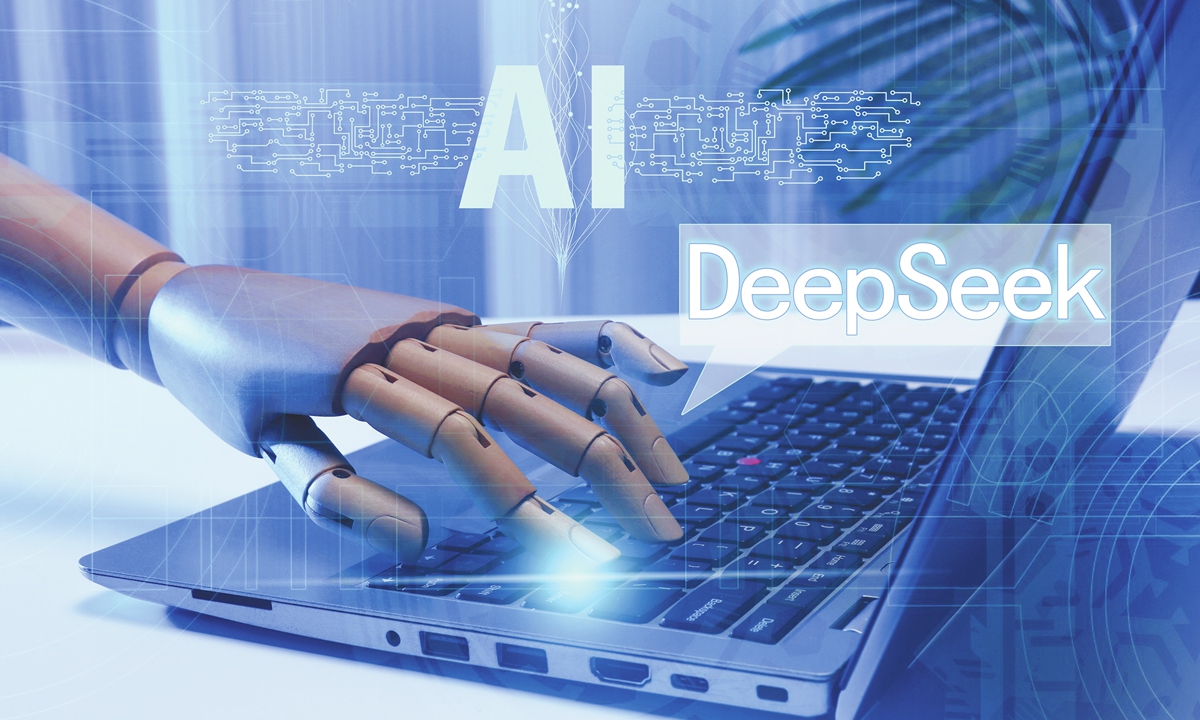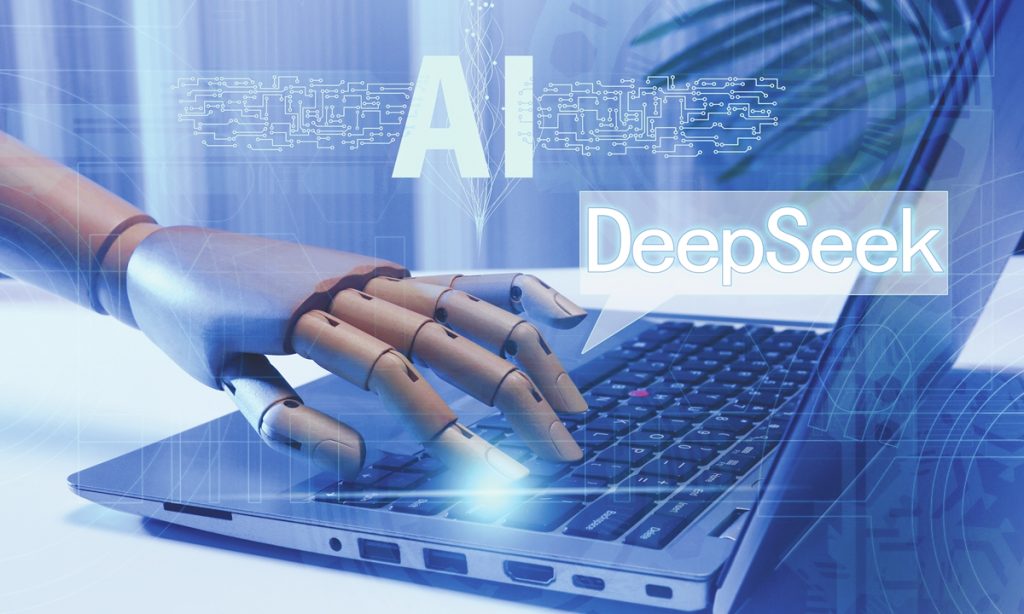
A conceptual image of DeepSeek that has recently stunned global tech industry. Photo: VCG
Germany’s data protection commissioner has reportedly asked Apple and Google to remove Chinese AI startup DeepSeek from their app stores, citing so-called data security concerns. A Chinese expert on Sunday accused the groundless move as “bias” against a Chinese firm, and said it is unconducive to cross-border tech cooperation.
Germany’s data protection commissioner Meike Kamp accused DeepSeek of “illegally transferring users’ personal data to China,” according to a Reuters report on Friday. She claimed “DeepSeek has not been able to provide my agency with convincing evidence that German users’ data is protected in China to a level equivalent to that in the European Union.”
“Just like the EU attempted to block Chinese telecommunications companies on 5G several years ago, the German government agency blocks DeepSeek without any evidence. This is pure bias against Chinese companies, which is detrimental to AI development in Europe and cross-border tech cooperation,” Liu Gang, chief economist at the Chinese Institute of New Generation AI Development Strategies, told the Global Times on Sunday.
In response to media reports of bans or restrictions on DeepSeek in some countries, the Chinese Foreign Ministry has repeatedly voiced strong opposition.
On February 6, Foreign Ministry spokesperson Guo Jiakun stated at a regular press conference that the Chinese government attaches great importance to data privacy and security and protects it in accordance with the law. “We have never asked and will never ask any company or individual to collect or store data in violation of laws. China has always opposed moves to overstretch the concept of national security or politicize trade and tech issues. We will firmly safeguard the lawful rights and interests of Chinese companies,” the spokesperson said.
In recent years, China has actively pursued the coordination of artificial intelligence (AI) development with governance, and is taking a leading role in data protection, Ma Jihua, a veteran telecom industry analyst, told the Global Times on Sunday.
In July 2023, the Cyberspace Administration of China (CAC) issued interim guidelines on managing generative AI services, the first of their kind in the world. In March this year, Chinese authorities also released a set of guidelines on labeling internet content that is generated or composed by AI technology, which are set to take effect on September 1, according to circulars published on the CAC website.
Global AI technology has developed rapidly in recent years, with breakthroughs, new business models and numerous applications emerging one after another, and the global community needs to strengthen cooperation to promote the inclusive and sustainable development of AI for the benefit of all humanity, Liu said.

